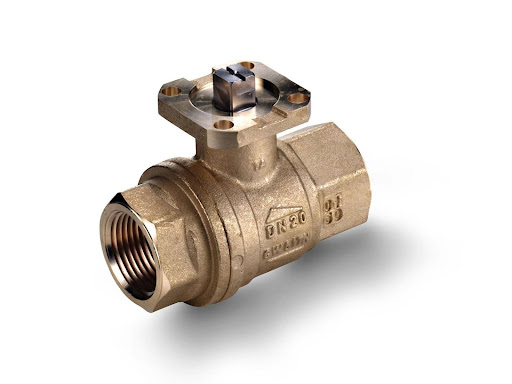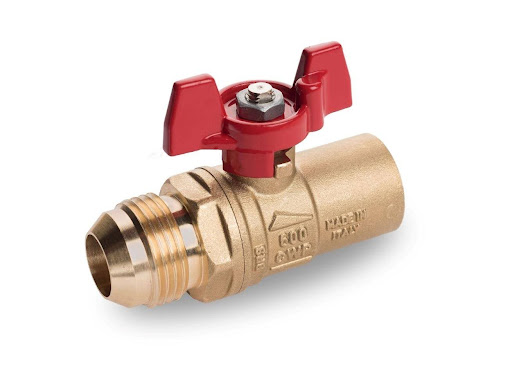Understanding the difference between brass and bronze valves

Ball valves are a cornerstone of modern fluid control systems, used across industries for their durability, compact design and reliable shut-off function. However, when selecting the right valve for your application, the material composition — specifically, choosing between bronze and brass — can make a critical difference in performance, longevity and cost.
In this guide, we’ll explore the key differences between brass and bronze ball valves, with a focus on material properties, applications and why RuB brass valves are the best choice for high-performance and reliability.
Material composition: how brass and bronze valves are made
Brass ball valves
Brass is an alloy primarily made of copper and zinc. It is known for its machinability and compatibility to many common substances. Nowadays, brass ball valves are usually made through hot forging, which allows for process repeatability, material savings and good dimensional tolerances. RuB ball valves, for instance, are produced using certified brass rods supplied by carefully selected partners, mostly located within 50 km of our production site, and undergo rigorous testing and finishing processes to ensure superior performance.
Bronze ball valves
Bronze is primarily made of copper and tin, with the addition of other elements like phosphorus, lead and aluminum. Traditionally bronze is used in marine and certain industrial settings. Bronze valves are typically heavier and cast in form. While bronze is traditionally used in saltwater applications , it is more expensive, requires thicker walls (higher cost) and it is less ductile than brass, making it less efficient for automated production.
RuB brass valves have also been used successfully for many years in applications handling salt-water or in mist environments. In this case we just recommend installing a stainless steel lever.
Performance comparison between brass and bronze ball valves
- Corrosion resistance: as noted above, bronze may be used more often in seawater or high-chloride environments, while brass offers excellent resistance in potable water, HVAC, air, hydrogen, gas and other media.
- Pressure and temperature tolerance: both materials support moderate to high pressures. Brass performs reliably in a wide temperature range, while bronze may tolerate slightly higher peaks due to its higher tin content. Thanks to its peculiarities, the forging process of brass offers tight sealing through valve walls, while bronze is more porous making is less suitable for gases with small molecule.
- Durability and maintenance: brass valves offer excellent mechanical strength and are easy to service. Bronze valves, being heavier, can withstand impact well but may require more force for installation and handling. Valves are often installed under ceilings and a lighter product offers great advantages.
Applications for brass and bronze ball valves: when to choose one over the other
- Choosing brass ball valves for drinking water, residential plumbing, sewage, commercial HVAC systems, firefighting, all four families of gas, hydrogen, irrigation, compressed air, vacuum, industrial automation and many more. Thanks to their machinability and consistency, brass valves —RuB valves in particular — are ideal for both manual and actuated configurations.
- Choosing bronze ball valves for applications and environments with exposure to chemicals known to attack zinc.
Why consider RuB brass valves?

RuB Inc. engineers and manufactures brass ball valves designed for performance consistency and longevity, backed by ISO 9001, ISO 14001, and ISO 45001 certifications. We use certified materials, perform automated testing on every single valve and maintain strict control over dimensional tolerances throughout the whole manufacturing process to ensure quality and reliability in both standard and custom versions.
While both materials have their place, brass valves can provide a versatile and cost-effective solution across a wide range of systems.
Do you have technical questions, or would you like to discuss valve selection? Contact RuB Inc. for support and product guidance.